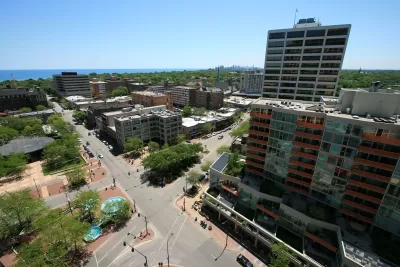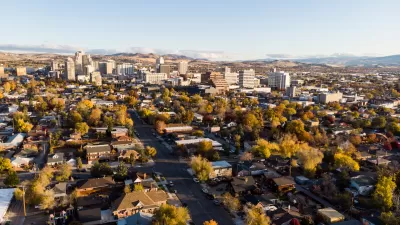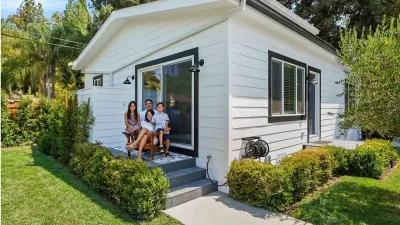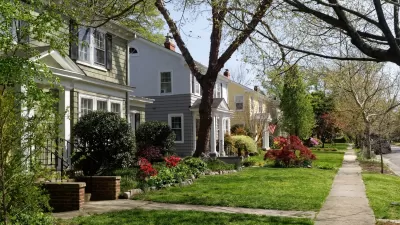A worker-owned developer in Evanston uses sustainable materials to build efficient, affordable ADUs to help homeowners create generational wealth.

A cooperatively owned housing developer in Evanston, Illinois could provide a model for efficient, affordable construction, writes Ashira Morris in Next City. The Evanston Development Cooperative, which specializes in building accessory dwelling units (ADUs), was founded in 2018 when the city started revising its zoning code to permit 'granny flats.'
Before EDC’s founding, the city did the work of legalizing existing ADUs, which were technically illegal because of changes made to city zoning in the 1950s to prioritize single-family housing. In 2020, thanks in part to EDC’s advocacy, two additional key changes were made: allowing the construction of ADUs on any residential property and legalizing internal ADUs, such as an attic or basement conversion.
The update also widened the ADU rules to include duplexes, not just single-family homes. "Resolving that line item was an equity issue, [EDC co-founder Robinson] Markus says," noting that Evanston's duplexes are disproportionately located in communities of color. "'Only certain parts of the city were allowed to build intergenerational wealth and increase their property value through this mechanism,' [Markus] says, 'while other parts of the city were often being denied this opportunity.'"
To share their experience, EDC co-published a step-by-step ADU guidebook with the city. "The co-op is also working with the city on an affordable housing pilot project, with one two-bedroom unit intended for a small family currently under construction behind a duplex." In the future, EDC hopes to scale up their operation with the same worker-owned model.
FULL STORY: Cooperatively Owned Builder Sees Affordable Housing, Climate Action in ‘Granny Flats’

Maui's Vacation Rental Debate Turns Ugly
Verbal attacks, misinformation campaigns and fistfights plague a high-stakes debate to convert thousands of vacation rentals into long-term housing.

Planetizen Federal Action Tracker
A weekly monitor of how Trump’s orders and actions are impacting planners and planning in America.

In Urban Planning, AI Prompting Could be the New Design Thinking
Creativity has long been key to great urban design. What if we see AI as our new creative partner?

How Trump's HUD Budget Proposal Would Harm Homelessness Response
Experts say the change to the HUD budget would make it more difficult to identify people who are homeless and connect them with services, and to prevent homelessness.

The Vast Potential of the Right-of-Way
One writer argues that the space between two building faces is the most important element of the built environment.

Florida Seniors Face Rising Homelessness Risk
High housing costs are pushing more seniors, many of them on a fixed income, into homelessness.
Urban Design for Planners 1: Software Tools
This six-course series explores essential urban design concepts using open source software and equips planners with the tools they need to participate fully in the urban design process.
Planning for Universal Design
Learn the tools for implementing Universal Design in planning regulations.
Gallatin County Department of Planning & Community Development
Heyer Gruel & Associates PA
JM Goldson LLC
City of Camden Redevelopment Agency
City of Astoria
Transportation Research & Education Center (TREC) at Portland State University
Jefferson Parish Government
Camden Redevelopment Agency
City of Claremont





























